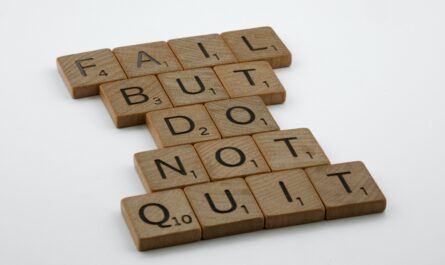Especially when preparing for a race, some of us might think that a lot of intensive training sessions will make us achieve better. Skipping a scheduled run can make us feel insecure as it could make us believe that we are not putting in enough effort. And so we keep on going: adding extra miles or running at higher speed; maximum input at all times! The muscle aches, stiffness and pains afterwards make us even more satisfied about all the efforts. No pain, no gain, right? But what if the pains don’t pass? What if we ignore them and continue going?
When you have trained too much occasionally, this is not necessarily bad. Even if it was a whole week or even longer, that you had some extra intensive sessions. But when you suffer from a more permanent pain in muscles, tendons or ligaments, this is a serious signal that we’re not taking our recovery seriously enough.
When the pains don’t fade away after a few days, you know you’ve pushed the limits. You really need to shift from too much training to healthy training. When you don’t, your body will stop you, for sure! And then you’ll be sitting down, watching others, whilst you cannot go anywhere.
The problem isn’t the training itself, or even the training intensity. The problem is that stress and recovery are not balanced. So it doesn’t mean you have to fully stop working out. To prevent injuries you can already make a big difference by changing your trainings from a heavy to a lighter intensity. When you feel you have have trained too much, recovery time is essential.
Basic Training & Recovery Theory
Many regular runners would benefit if they would follow up each period of 3 to 4 weeks (when they built up duration and intensity of their running) with a one week’s active recovery period. In this week you allow your body some time to “understand” that you want it to build up its fitness and endurance to a higher level. So basically: every 4 weeks of “intensive training” should be followed by 1 week “lighter recovery training”. If you don’t build recovery into your schedule, your body will eventually force it.
Beyond your limits

Have you really gone beyond your limits for a while? Are you still able to run, but every time you do, you’re continuously feeling pains in particular body parts? In that case you are probably not seriously injured (yet). But be careful: this is the danger zone! Listen to your body.
Active Recovery for Runners: 5 training adjustments
If your pain is severe, it is always recommendable to ask for medical advice from a sports physic therapist to find out what’s causing the pain. But if it is not that serious yet, these five training adjustment might help you recover.
1) Cut down your mileage to 60%
Drop your weekly mileage to 60%! Your body sighs with relief.
2) Strength training
With 40% less running, you gain more time for proper warming-up and cooling-down. Instead of running you can focus on training those body parts that could use some extra attention. For example some extra strengthening training for your hips, core or lower back muscles. Have a look at my article Basic strength exercises for running
3) It’s OK to skip some running
Indeed, skip the running training and turn it into a core stability training. If walking is doable without any pains, then you could add some series of exercises in walking techniques. This way you could improve your posture and you’ll develop your coordination. This often also leads to a faster recovery.

4) Stretching or runners yoga
Many people experience stretching or runners yoga as relaxation. Your muscles are still working out, but without great strain. And your blood circulation is improving. This all contributes to recovery.
5) Release mental pressure
Just walk for pleasure, no targets, just walk to relax. This works well to release some stress on your muscles, tendons and ligaments and also helps you to releases some mental pressure
Less is more!

Many pains due to too much training are often the result of pushing ourselves to run further and train harder. When these pains are not “just a bit of muscle ache”, then please remember the basic training & recovery theory and simply allow yourself a break! Temporary cut down on your running mileage and focus on other types of training. This works well to lower the stress on your muscles, tendons and ligaments and also helps you to release some mental pressure.
Active recovery for runners after too much training means keeping your body active, but taking the pressure off. This will help your body to recover quicker.
Eat and Sleep well

Part from adjusting your training routines, your overall lifestyle should be healthy in order to recover quickly after too much training. Good nutrition is very important to repair the damages. Your body needs building blocks such as proteins, carbohydrates, fats, minerals and vitamins. Sports nutrition is quite complex and also very personal. Which nutrients you need (more) and when you need them, will all depend on your own body size and the type and intensity of your exercises. Therefor I will not go into details on this topic. Generally speaking: make sure you have a well-balanced diet and what’s even more important is to keep yourself hydrated.
If you would like to read more about sports nutrition, check out these books :
In order to restore itself after training, your body needs enough sleep too. Some studies have shown that there is a link between lack of sleep and an increased risk of getting injured. Most adults need approximately 8 hours of sleep per night. When you have trained too hard, you might find it harder to fall asleep. Some things that might be helpful: limit screen time at nighttime, lower your caffeine intake, have your dinner at least two hours before bedtime, have a relaxed evening routine, lower your alcohol intake, etc.

I hope this article was useful to you. If you have any questions, please contact me at an*******@mo*********.com or leave a comment on this page and I will get back to you.






Thank you so much for the tips! I am just getting started running with my husband. He loves running, me not so much. I tend to get sore and struggle to keep pushing myself. It is good to know that it is ok to back off a little to give myself a chance to recover.
I LOVE the yoga recommendation. Any particular yoga poses that you have found especially helpful when recovering from running?
Hi Amber, Thanks for your comment. I’ll write a post on the runners yoga soon!